Top Democrats Are Enabling Climate Catastrophe
Chuck Schumer and Nancy Pelosi refuse to address perhaps our most pressing crisis. The consequences could prove devastating.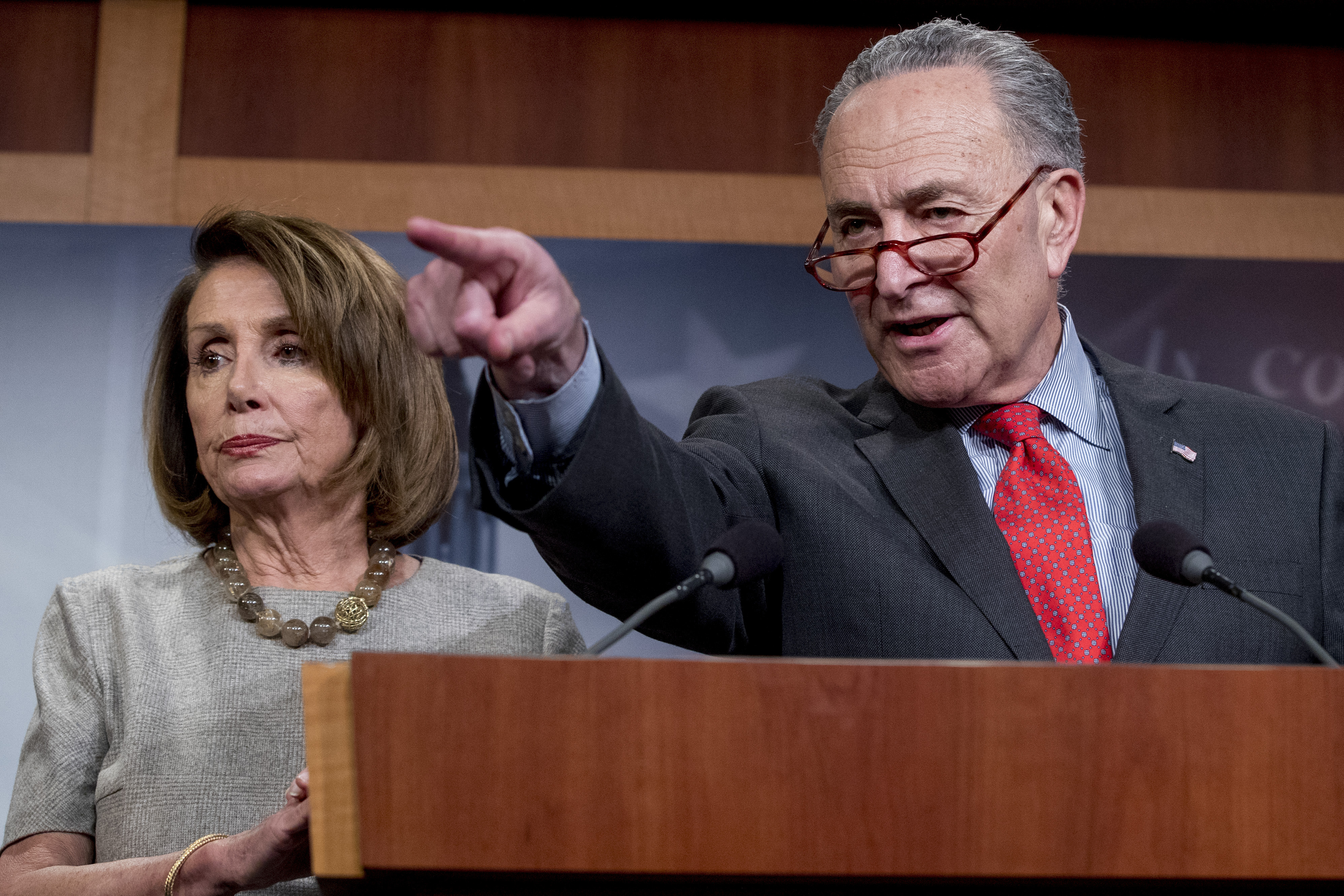 House Speaker Nancy Pelosi, D-Calif., and Senate Minority Leader Chuck Schumer, D-N.Y. (Andrew Harnik / AP)
House Speaker Nancy Pelosi, D-Calif., and Senate Minority Leader Chuck Schumer, D-N.Y. (Andrew Harnik / AP)
What follows is a conversation among journalists Jacqueline Luqman, Eugene Puryear, Norman Solomon and The Real News Network’s Paul Jay. Read a transcript of their conversation below or watch the video at the bottom of the post.
PAUL JAY: Welcome to The Real News Network. I’m Paul Jay.
With all the discussion, debate, news reporting about the Michael Cohen hearings, the Trump scandals, the continuing soap opera in Washington, it’s very difficult to actually spend time focusing on the thing that’s actually the most threatening facing human civilization as we know it.
The climate crisis is without any question the most immediate problem, and it does continuously get lost in the context that the fact this guy is a climate denier, even that kind of gets lost in the fact that he’s involved in corruption scandals and so on. Of course, corporate media doesn’t care much about what’s important, they care about what drives media, but that goes for a large part of the leadership of the Democratic Party as well. But in a recent CNN town hall, and we’ve been covering this, doing segments on Sanders’ CNN town hall, he did speak about climate. And here’s what he said.
SPEAKER: My home, the lower Eastern Shore of Maryland, part of the Delmarva Peninsula, is estimated to be one of the first places in the country to experience the effects of climate change. In fact, with more and more frequent flooding, it already is. What is your plan to help these rural communities in the poorest part of our state to fight climate change?
BERNIE SANDERS: What you’re asking is maybe–you know, a couple years ago, I don’t know if you were moderating, well I don’t know if it was you or CBS, I can’t remember. Somebody asked me, they said, “What is the major national security issue facing this country?” You know what I said? I said, “Climate change,” and people laughed. Wasn’t that funny? Well, people are not laughing now, because they have read the scientific reports and they know that if we don’t get our act together in the next twelve years or so, there’s going to be irreparable damage.
So let me lay it out on the line. We are going to have to not only take on Trump and his deniers, but we are going to have to take on the power of the fossil fuel industry, that is the coal companies and the oil companies and the gas companies. And we are going to have to transform our energy system away from fossil fuel to energy efficiency and sustainable energy. Now, the good news is that we know how to do that. The technology is there, and that technology will only improve. And here’s the other good news when we make that transformation. We’re going to create millions of good paying jobs, weatherizing our homes, changing our transportation system, moving aggressively into wind and solar and other sustainable energies.
PAUL JAY: So that was Bernie, the greatest national security threat facing us, climate change, something that we barely hear about. Corporate television news almost never even talks about it, and for that matter, the leadership of the Democratic party pays kind of lip service to it. He was talking about the climate deniers, and I think he could have spent a little bit more time talking about the climate denier enablers. And that’s not only corporate media, but it was also, for that matter, the Obama administration had eight years to do something significant and didn’t. Norman?
NORMAN SOLOMON: I think that phrase is quite apt. The climate deniers are augmented by the climate enablers, as you put it, and the enablers are at the top of the Democratic Party in the Congress. And so, when we look at where there are areas for progressives to hammer on the Democratic Party leadership such as it is, I think climate is at the top of the list. We’ve got Pelosi and Hoyer in the House, we have Schumer and Durbin in the Senate, and as you put it, they’re good at the lip service, but this is totally inadequate in terms of anything that is being done by those top Democrats given the threat involved. And I think most clear in the House of Representatives is this new committee. Now let’s face it, if Joe Crowley hadn’t been defeated in a Democratic primary by Alexandria Ocasio Cortez, there would be no Select Committee on Climate Crisis. But because of that momentum, a volunteer for Bernie Sanders a few years ago, now in Congress, AOC and that entire push from the grassroots, made the Democratic Party leadership feel compelled to set up what is called the Select Committee on Climate.
And this is where I think, among other areas, there’s a tremendous opportunity for progressives to push hard. And that is that the select committee has been denied the power to subpoena and denied the power to draft legislation. And that’s preposterous. And so, we should be raising hell with the members of that committee who are Democrats appointed by Pelosi, and with Democrats in Congress in general, to say that is not acceptable. That select committee has to stop being a farce and a phony front for taking action and has to be empowered to do so.
PAUL JAY: It’s interesting. AOC didn’t even want to be on that committee. Jacqueline?
JACQUELINE LUQMAN: I didn’t even realize that the committee had no subpoena power and had no power to pass legislation. So this is like the power of these types of mediums, where we do get to share and spread this information. So now that we know and we recognize that yes, we do have to face this crisis head on, now we have to ask, what do we want these people to do? It goes beyond just passing a Green New Deal. What are we demanding our elected officials to do about our local energy companies that are continuing to hike energy rates that are already based on fossil fuels but they aren’t providing any kind of relief for poor residents or middle class residents who just can’t afford to move toward renewable energy solutions or aren’t even offering them? What are our elected officials doing about expanding incentives for people who do drive to access electric vehicles? What are they doing about revamping the industrialized farming industry, not just meat, but also all industrialized farming, to handle the way industrial farms handle waste management? And as well as, what about just reducing waste of food in industrialized farming?
These are some everyday, really simple kind of questions that we need to be asking our elected officials. And I agree with Norman, especially the Democrats, because they’re supposed to be the good guys. We need to be asking them what they’re going to do about these things and when are they going to ask. I really applaud this group of kids who confronted Dianne Feinstein last week. And I think that response from her is very telling of the kind of culture we still have to fight in Washington in regard to this issue and so many others.
PAUL JAY: Yeah, we’ll play that clip of the confrontation with Feinstein here. Eugene, go ahead.
EUGENE PURYEAR: Well, yeah, I agree with a lot of what’s been said. And I think one thing that’s really key in this, and certainly I think Bernie is absolutely right, this is our number one threat, is to continue to concretize to people how these threats start to interweave with other major issues. I mean, for instance, one of the things we’re seeing in coastal communities, and the questioner there of Senator Sanders raised the point that she’s from the Delmarva Peninsula, we’re seeing in a lot of these coastal communities, because of the threats of climate change, their property values are dropping. But what’s based on property taxes? Education funding. And so, coastal communities are actually now struggling with their public education systems because of the implications of climate change.
You talked about trade policy. Well, certainly you see China is now restricting U.S. trash. That was a lot of our sort of “recycling,” which was sent to China. And because of some of the things that have been happening there and their own policies, they’re no longer taking it, which means an increased amount of things are going to incinerators, primarily in black and brown communities, and ruining people’s lives and certainly ruining their health. I think there are a million different things out there that we could do. Even just the reduction in arable land, the challenges to water resources in states of the West and things of that nature that will challenge farmers, so that everyone can really start to get more of a sense of how climate change affects them individually. I think we have a good big picture sense of how it’s affecting us as a species, and I’d like to think that would be enough.
But in the context of what I think is not outright climate denial, but when you talk about the enablers, this idea that of course we can’t deny it, but we have to move slowly or deliberately or whatever it may be, which would actually be akin to a lot of the liberal positioning in the early stages of the civil rights movement. Well yes, you need rights, but we’ve got to do it slowly, we’ve got to do it respectfully of Jim Crow infrastructure. And that collapsed under the weight of, obviously, the mass civil rights movement. And I think the sort of halfway houses are collapsing under the weight of people like these young folks who are challenging Senator Feinstein.
PAUL JAY: Right. The big attack on the Green New Deal coming from Trump and the right is that this is “just an excuse” for more big government. And that phrase, more big government, is just a symbol, a tag word for more socialism, for more planned economy. The problem is two parts to it. Number one, yeah, you’re going to deal with climate change, there’s going to be a planned economy. You have to plan to get off fossil fuel and onto sustainable. That’s going to take government planning, because without doubt, it’s clear the free market is not going to go there. And number two, the fraud of this whole attack on big government and planned economy is that the biggest planned economy already exists, and it’s called the militarization of the American economy and the Pentagon. It’s already a government agency with a trillion dollar a year budget or more which has a planned economy of militarization to the point where they make sure there’s aircraft manufacturing in every single state so that the web of the manufacturing controls politics at practically every level.
Even Bernie Sanders was susceptible to that when they were going to build the F-35 in Vermont. He wound up having to support it, because without the F-35, they would have so many jobs lost. The blackmail and pressure militarization puts on every level of politics. But it’s a big government, if you want to use the word, planned economy. But they don’t talk about that. And why don’t they talk about that? Because they’ve all got their hand in the military industrial congressional complex gravy train, and they don’t care about the hypocrisy of their language. But the problem is, under normal circumstances, and this ties together with the conversation we had earlier about socialism. There would be, sooner or later, a kind of evolution towards more and more socialized solutions one way or the other. But the climate change, we don’t we don’t have that kind of time for like some kind of evolution. Norman, what do you think of all that?
NORMAN SOLOMON: The urgency is such that we need to cast aside all these halfway, supposedly more realistic measures. The idea that market forces can solve this problem is preposterous. The record of cap and trade out here in California is abysmal. We got into this horrific mess largely because of market forces. When you look at, for instance, an editorial that The Washington Post printed a few days ago, an official editorial by the newspaper that is owned by the richest person in the world, Jeff Bezos, they gave a tepid endorsement of the Green New Deal, but said that too much of the resolution that’s been introduced by AOC and backed by many Democrats in Congress, too much of it, they say, goes into other matters. And they argue that because of the urgency of the climate crisis, other concerns like social justice and economic justice, they need to be set aside.
And of course, that’s a corporate view of what should be done, but it’s bass ackwards if you really care about dealing with the climate crisis, because these are not laundry list issues. As Eugene was just referring to, these are integrated, interwoven issues. And we’re never going to roll back this horrific threat of climate change unless we deal with it in an overall way which includes social justice and democracy.
PAUL JAY: All right. Well, it’s a good point to end on for this segment. Thank you for joining us.
JACQUELINE LUQMAN: Thank you.
EUGENE PURYEAR: Thank you.
PAUL JAY: And thank you for joining us on The Real News Network.
Your support matters…
Independent journalism is under threat and overshadowed by heavily funded mainstream media.
You can help level the playing field. Become a member.
Your tax-deductible contribution keeps us digging beneath the headlines to give you thought-provoking, investigative reporting and analysis that unearths what's really happening- without compromise.
Give today to support our courageous, independent journalists.
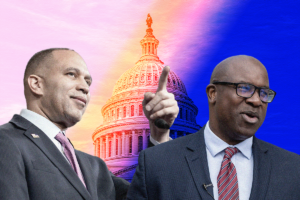
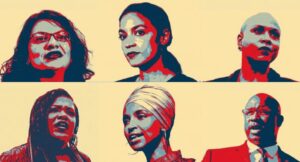

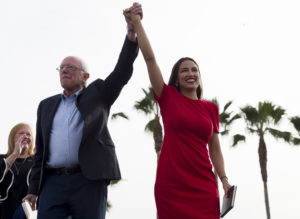
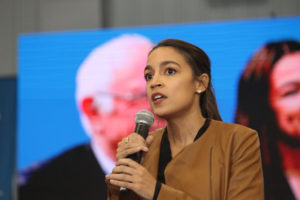



You need to be a supporter to comment.
There are currently no responses to this article.
Be the first to respond.